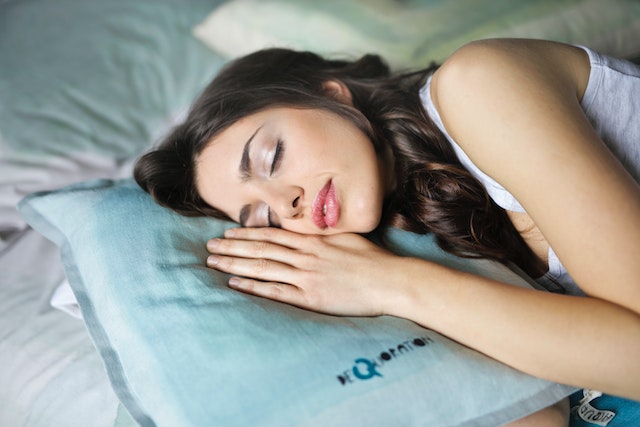Rapid eye movement (REM) sleep is one of the four stages of sleep identified by researchers. This stage of temporary muscle paralysis and rapid eye movement sets approximately 90 minutes after you fall asleep.
REM sleep is characterized by increased brain activity and is vital for learning, memory, and emotional development. During this stage, new neuronal connections establish in the brain, making it an essential aspect of life.
According to experts, individuals that have 20-25% of their sleep as REM sleep are sharper and more intelligent. On the other hand, people with poor REM sleep have weaker memories and emotional control. REM sleep deficits also increase your propensity for migraines.
Now that we know REM sleep is crucial for your brain development, the following are eight of the most effective tips to increase it.
Create the Right Sleeping Environment
Your sleeping environment is more significant in helping you fall asleep than you imagine. A dark and calm bedroom with no bright lights and an ideal temperature of 18 to 20 degrees Celsius (64 to 70 degrees Fahrenheit) is essential for good-quality sleep.
You should pay special attention to sleep hygiene to improve REM sleep.
Get the Best Mattress
The most basic requirement for sleep enhancement is an ideal bed. A relaxing bedroom with the perfect mattress and right-sized pillows promotes REM sleep and is the ideal escape after a hectic day.
You can enjoy your sleep by getting yourself a cozy mattress from Essentia. There is also a wide range of sleeping items available to choose from.
Decor lovers can set up a luxurious bedroom to ensure peaceful dozing.
Follow a Sleep Routine
Going to sleep and waking up at a consistent time is essential for a regular sleep-wake cycle and overall health. Sleep experts emphasize the importance of a normal sleep-wake routine and maintaining a circadian rhythm.
By falling asleep at the same time, you train your body to follow a schedule and enter all sleep stages regularly, including REM sleep.
9 to 5 job employees can easily follow a sleep routine. However, frequent traveling can disrupt your schedule. The good thing is you can learn to get your sleep routine back after traveling.
Avoid Caffeine Intake At Night
Beverages containing caffeine are stimulants that can keep you up at night. Drinks like coffee, caffeinated tea, and red wine can deprive you of a good night’s sleep.
Most people see dreams during the REM sleep stage. So, drinking coffee or caffeinated tea at night also reduces your chances of experiencing dreams.
Restricting caffeine intake helps improve REM sleep, especially in young individuals.
Abstain From Drinking Alcohol Before Bed
Most people believe alcohol consumption can make them sleepy, but that is not true. Consuming alcohol before bed interferes with sleep.
A study revealed that drinking significantly reduces sleep onset latency with REM sleep disturbance. The most pronounced effect on REM sleep is during the first half of the night.
Exercise Regularly
Regular exercise helps keep your organs and muscles in ideal shape and condition. Doctors recommend walking 10,000 steps every day to maintain optimal health.
Several studies advocate exercising to improve sleep quality. A stagnant life negatively impacts sleep parameters.
You should add exercise to your routine for better REM sleep.
Do Not Use Smart Devices Before Bed
Nighttime smartphone usage is linked to poor sleep quality.
According to a study, 41% of smartphone users had interrupted sleep on at least one weekday over four weeks. Researchers now consider substantial smartphone use during bed hours a health challenge.
So, it is essential to abstain from carrying a smartphone or tablet to bed.
Take Dietary Supplements
Dietary supplements can be great aids in enhancing sleep quality. Magnesium supplements are effective in relaxing the mind and the body by increasing melatonin levels.
A peaceful mind and a relaxed body allow better and deeper REM sleep. Supplements containing magnesium also cut down stress levels and benefit insomniacs.
Get Treatment for Sleep Disorders
Sometimes, people have underlying sleep disorders and are unaware of them. Insomnia and circadian rhythm disorders can alter REM sleep.
Ten minutes of REM sleep is average for most individuals. Sleep disorders can reduce this time and hamper your learning abilities.
So, seeking treatment for chronic sleep disorders is crucial for good sleep and overall quality of life.
Conclusion
REM sleep is among the four phases of sleep that sets approximately after 90 minutes of falling asleep. This sleep period, characterized by increased brain activity and eye movement, is a salient aspect of learning and memory. You can get more REM sleep by adopting some simple steps.
Curating a comfortable bed and following a sleep-wake routine are the initial steps for REM sleep enhancements. Getting the right mattress and pillows aids in improving REM sleep.
Avoiding caffeinated beverages and alcohol before bed also helps you doze off well.
Limit bedtime use of smartphones to relax the mind and eyes.
Dietary supplements and prompt treatment for sleep disorders can also be beneficial steps to get good sleep, including REM sleep.
Related Posts












